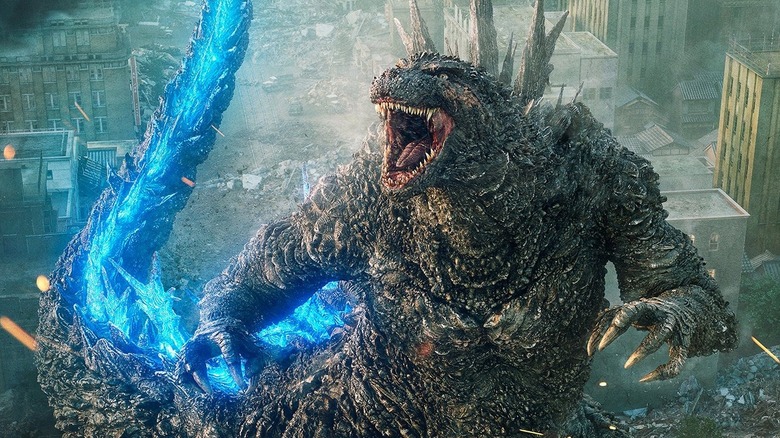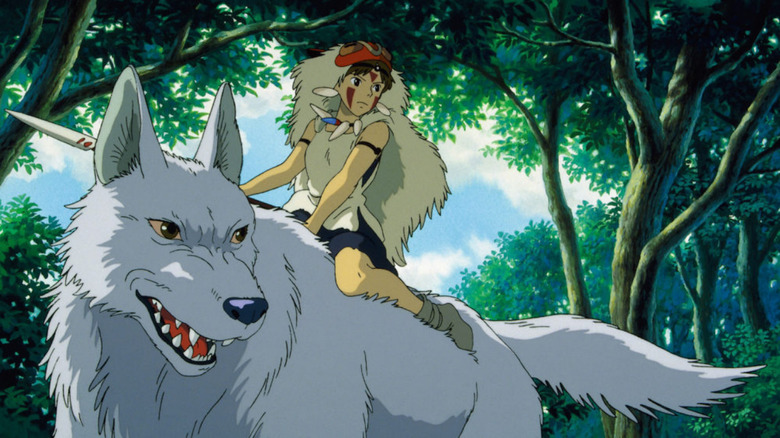The Studio Ghibli Masterpiece That Subconsciously Inspired Godzilla Minus One
"Godzilla Minus One" is not only one of the best movies of 2023, but also one of the best movies in the entire 70-year history of the "Godzilla" franchise. This is a movie that makes Godzilla a formidable force of nature, a monster to be terrified of and whose atomic breath now has a striking resemblance to nuclear explosions — bringing the King of Monsters back to his roots as an allegory for nuclear power.
Much like "Shin Godzilla," part of the appeal is that "Godzilla Minus One" draws from different sources of inspirations than just other "Godzilla" movies (though this one is also influenced by the first film in the franchise). Director and writer Takashi Yamazaki is a big fan of American movies, and he clearly pays homage to "Jaws" in a key scene. But there are also elements from anime that inspired him subconsciously, including one of Hayao Miyazaki's best films.
Speaking with The Verge, Yamazaki explained how he drew from "Princess Mononoke" and its stunning opening scene. "This is actually something I realized after I finished 'Minus One' and started reflecting on the entire process," he said. "This is very specific to Japanese culture and has roots in both Shintoism and animism, but at the very beginning of 'Mononoke,' the people have to calm the raging spirit down, and I wanted to create a Godzilla in a very similar vein."
Godzilla as a force of nature
"Princess Mononoke" is a fantasy film following a young prince who inadvertently gets involved in a battle between the gods of a forest and a village of humans exploiting the earth's resources. The film begins with a stunning, high-speed chase where the prince, Ashitaka, is being chased by a boar who was turned into a demon.
"I wanted Godzilla to feel like the physical embodiment of a kind of negative energy tied to people's fears, worries, and disillusionment," Yamazaki explained. According to the director's vision, "Godzilla Minus One" is not a movie about humans having to kill Godzilla. Instead, they are there to calm him. The movie, then, is "about putting a name and face to something scary and inviting the audience to calm that negative presence through the shared experience of watching the film."
This is honestly a fantastic take on "Godzilla," one that has been explored before in titles like "Godzilla: Singular Point." The King of Monsters can never be destroyed (otherwise there'd be no franchise), so having him be a force of nature representing the worst of humanity or a divine punishment that humans must placate is quite smart — and helps explain the final scene in the movie. This is also the central theme of "Princess Mononoke," a complex film with nuanced themes that doesn't paint one side as explicitly bad or good. Instead, the movie is all about finding a balance with nature and not becoming blind with progress. It's cool to see that influences from Miyazaki's classic movie found their way into "Godzilla Minus One," even if Yamazaki himself wasn't fully cognizant of it while making his film.

